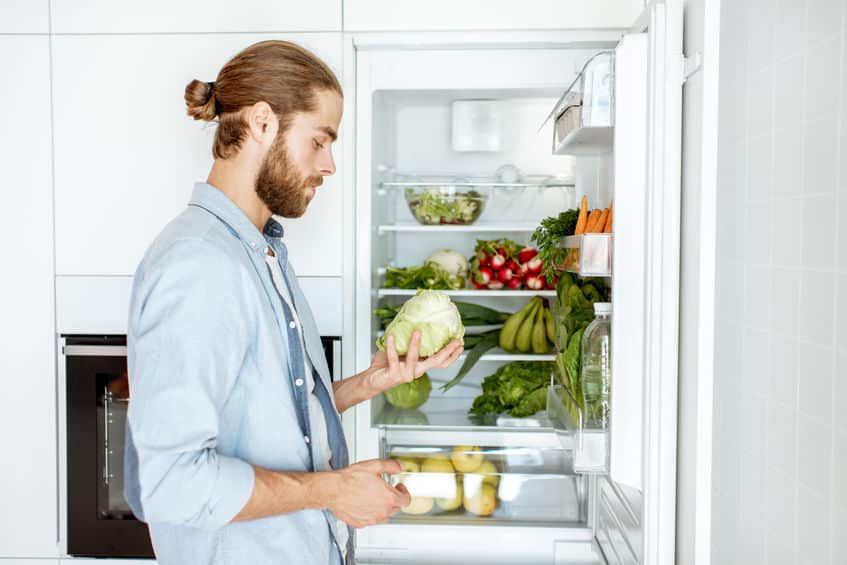By Jessica Scarpati –
When it comes to eating practices that promote good health, there’s a lot to love about plant-based diets. But a recent study shows that a perpetually meatless menu can have its drawbacks, particularly when it comes to bone health.
After examining the health records of nearly 55,000 U.K. adults over 18 years, British scientists found that vegans, vegetarians and pescatarians (those who eat fish but not meat) were considerably more likely to suffer a broken bone than people who ate meat.
Vegans, in particular, may have cause to be extra rattled about bone health. Compared to omnivores, vegans with below-average calcium and protein intake had a 43 percent higher risk of fractures anywhere in the body, according to the study published in BMC Medicine.
“The biggest differences were for hip fractures, where the risk in vegans was 2.3 times higher than in people who ate meat,” said nutritional epidemiologist Tammy Tong, who led the University of Oxford study.
It’s believed that several characteristics about vegan diets explain the discrepancy: Compared to meat-eaters, vegans tend to have a lower body-mass index (BMI) and lower calcium and protein intake.
When the Oxford research team reanalyzed the data to compare outcomes across people with similar BMIs, they found no significant differences in the risk of arm, wrist or ankle fractures—regardless of diet. The study also discovered that vegans, vegetarians and pescatarians with an adequate amount of calcium and protein in their diet partly reduced their risk for broken bones.
While the Oxford study was the first to comprehensively examine the risks of total and site-specific fractures in different diet groups, nutrition experts have long been urging vegans and vegetarians to bone up on the nutrients needed for a sturdy skeleton.
“An animal-free diet can be so healthful and offer incredible benefits, but it’s hard to deny that certain vitamins and minerals may need to be supplemented in the majority of vegans,” said Ginger Hultin, a plant-based nutrition expert and owner of Champagne Nutrition in Seattle, told Today’s Dietitian. “Any type of diet needs to be planned to avoid deficiencies in vitamins or minerals. Huge studies and meta-analyses have shown that vegans may be at a slightly higher risk for reduced bone density.”
These risks aren’t unique to vegans and vegetarians, but people who forego meat do need to be more cautious about adopting eating habits that deliver bare-bones nutrition, explains Katherine Tucker, a Massachusetts-based nutritional epidemiology professor.
“A deficiency has the same impact on bone health, whether you are a meat-eater or plant-eater,” Tucker said in an interview with CNN. “The main thing about vegetarians and particularly, vegans, is that they need to be very careful about getting the nutrients that they are missing if they’re not including products [rich with them].”
And while diet is a vital part of maintaining healthy bones, it’s not the only factor in preventing fractures.
“As important as nutrition is, there is nothing worse for bone health than being a couch potato,” Messina writes on her blog. “Exercise that provides impact and that builds muscle mass and strength is crucial for keeping bones strong. Exercises that improve balance are also important, since most fractures are due to falling.”
Boning Up On Calcium & Protein
When it comes to calcium—an essential mineral for building and maintaining healthy bones— vegetarians and pescatarians have an easier time, as both diets allow for the consumption of calcium-rich dairy products like milk, cheese and yogurt. Vegans, on the other hand, have to be more thoughtful about their calcium intake, as not all plant-based sources of calcium are absorbed equally by the body.
“One factor that greatly complicates the issue is that absorption of calcium varies dramatically among foods,” registered dietitian Ginny Kisch Messina explains on her blog, The Vegan RD. “Calcium recommendations reflect the assumption that humans absorb about 30 percent of the calcium in their diet. That’s the absorption rate for calcium from cow’s milk, fortified plant milks and from tofu made with calcium sulfate. But absorption is quite a bit higher for certain leafy green vegetables from the cabbage family like kale, bok choy and turnip greens. In contrast, it’s much lower for some plant foods like spinach, beans and tahini.”
Fortunately for vegans and vegetarians alike, plant-based protein sources are abundant. Soy, beans, nuts, seeds, whole grains and legumes are all rich in protein. But the American Society for Nutrition stresses the trick is matching complementary proteins—such as whole-grain bread with peanut butter—to get the amino acids that are essential for good health.
“Protein complementation does not have to be done at the same meal,” the American Society for Nutrition explained. “If you ate beans for lunch and then had some raw almonds for a snack later, you would be adding the [amino acid] methionine that you had missed out on during lunch.”













